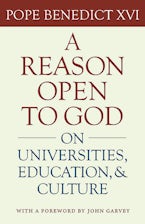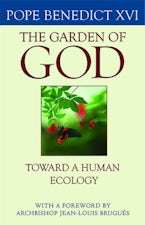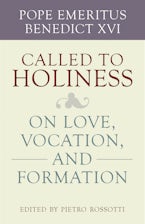Preparing your PDF for download...
There was a problem with your download, please contact the server administrator.
A Reason Open to God
On Universities, Education, and Culture
Foreword by John H. Garvey
Edited by J. Steven Brown
Imprint: Catholic University of America Press
With clarity and wisdom, Pope Benedict XVI sets out his vision for Catholic higher education in this first and only collection of his major addresses on the topic. What is the mission and identity of a Catholic university? What are the responsibilities of administrators, teachers, and students in Catholic institutes of higher learning? Where does the central theme of "love of God and others" fit into academia?
The pope's most important statements on the nature of the university and its cultural and educative tasks are brought together in this volume. Featured are the various speeches he has given to university audiences since his pontificate began. Also included are select addresses on education and culture, themes that go to the heart of the mission of the university, and that possess a value for society as a whole.
Throughout these addresses, the pope presents 2,000 years of lived tradition with a striking freshness. His response to the contemporary challenges in Catholic higher education will have an enduring historical impact.
The addresses are grouped in parts as follows: The Problem and the Urgent Task Ahead; The Relationship of Faith and Reason; The Symphony of Freedom and Truth; Education and Love; Pedagogy and Learning; The Church—Education in Faith and Community; Culture and the University; Science, Technology, and Theology; and Caritas and Mission. John Garvey, president of the Catholic University of America, provides a foreword in which he reflects on the themes of the pope's speeches. J. Steven Brown is editor of the collection.
Born in 1927 in Germany as Joseph Ratzinger, POPE BENEDICT XVI became head of the Roman Catholic Church in April 2005. A prolific author, theologian, and professor, Ratzinger served as an expert at the Second Vatican Council; led the German Archdiocese of Munich and Freising; and, in 1981, was called to Rome by Pope John Paul II to head the Vatican's Congregation for the Doctrine of the Faith, where he served until his papal election. In 2013, he became the first pontiff in almost 600 years to resign office
""…a book that offers multiple glimpses of a Catholic educational vision, in which reason and faith are held together without confusion and without separation in a kind of Chalcedonian unity… a sourcebook of meditations on the relationship between faith and intellectual life, and on what it might mean to live in harmony with the logos"
~Wiley - Modern Theology?




